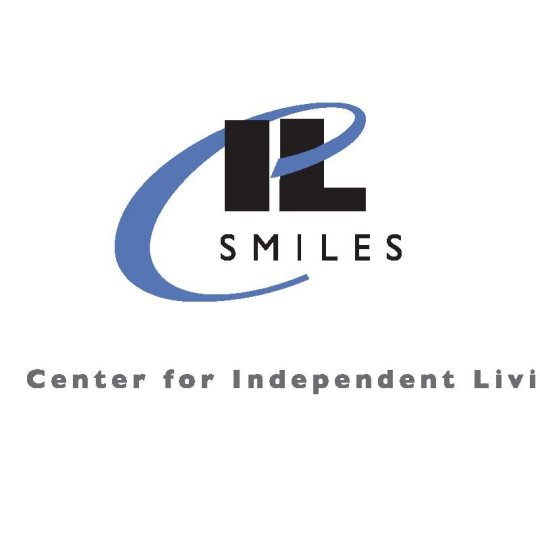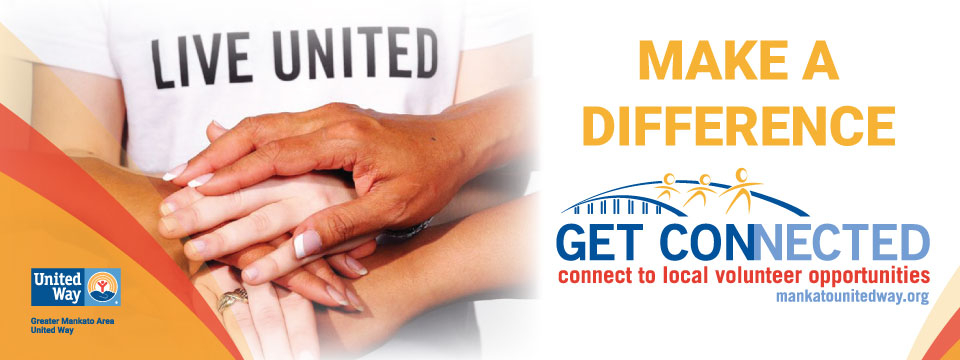

Who We Are
SMILES Center for Independent Living provides services to individuals with a range of disabilities. SMILES works to increase the availability and improve the quality of community options for independent living and achievement of independent living goals by individuals with significant disabilities on a cross-disability basis, within the geographic area of south central Minnesota.
Our Mission: To support people with disabilities to realize their full potential.
Our Vision: A world without barriers with equal opportunities & choices for an independent life.
What We Do
Program core services are:
Advocacy
Advocacy or standing up for one’s rights is a vital component for persons with disabilities. Advocacy by an individual or by an advocacy group normally aims to influence public-policy and resource allocation decisions within political, economic, and social systems and institutions. Advocacy represents a series of actions taken and issues that are addressed in order to change the “what is” to “what should be.” It includes problem solving to reduce or eliminate the barriers that persons with disabilities may encounter.
Independent Living Skills Training
People come into the Independent Living Program by contacting SMILES to inquire about our services themselves, or are referred by other service providers that SMILES collaborates with or through county social services.
They may already know what they need, or SMILES can help them with determining their needs through an assessment. The Independent Living is a goal driven program as determined by the consumer, and continues to provide support as needed.
Program serves youth and adults, individually or in groups with an opportunity to make appropriate choices and learn skills that will assist them to achieve the highest level of independence possible. Licensed by the State of Minnesota, the program offers in-home community supports to persons receiving assistance through Developmental Disability, Community Alternatives for Disabled Individuals or Traumatic Brain Injury waivers, or Semi-Independent Living Services.
Information and Referral
SMILES maintains and updates an Information and Referral resources database relating to programs and services provided by SMILES and other disability related organizations throughout Region IX and the State of Minnesota. Information about specific disabilities, assistive technology, service providers, local resources, government benefits and other disability related resources are stored within this database.
SMILES provides individuals with disabilities, family members, service providers, and the community at large information on options, resources, and issues that influence independent lifestyles. The information helps to assist in making choices and meeting the Independent Living needs of individuals with disabilities.
Peer Mentoring
SMILES Peer Mentor program emphasizes the direct involvement of nonprofessional individuals with disabilities as role models providing independent living services to consumers. The program is based on the belief that some supported services are best provided by people who have a disability.
Transition to Community
Transition from School to Community provides a bridge from the security of school to the responsibilities and opportunities of adult life. This program is available for students with disabilities 14 to 22-years-old.
Nursing Home Relocation Project assists persons with disabilities to relocate from a nursing home to an independent living situation by accessing services needed to support community-based living.
In addition, SMILES provides these services:
Assistive Technology
SMILES assists people with disabilities as they work to eliminate barriers. Assistive technology, any customized item, piece of equipment or product system used to improve the functional capabilities of individuals with disabilities is a primary tool in this effort. The program is available to individuals with disabilities, family members, service providers, and the community at large.
The program offers:
- Program is available to consumers with disabilities, family members, service providers, and the community at large.
- Assessments are provided to help determine the assistive technology needs regarding daily living, employment, education and recreation.
- Regional Technology Center allows consumers, family members, and service providers to learn about assistive technology in a hands-on environment.
- SMILES provides a Lending and Demonstration Library containing a large number of assistive technology devices, including items for daily living, various types of computer keyboards, adaptive computer mice, vision and hearing related items.
- The Lending and Demonstration library allows consumers to try a piece of technology in their home or work environment to see if it will fulfill their need(s) for up to 30 days.
- The Loan Program allows a consumer the opportunity to try a device to see if it fulfills the need without having to purchase the item first.
- SMILES organizes various Assistive Technology demonstrations with the Region 9 area demonstrating the use of assistive technology.
Consumer Directed Community Support planning services offers one-on-one yearly planning with families who qualify through waiver programs. Planners then work with the family, county case managers and fiscal agents to meet the needs of consumers.
PCA Choice
The PCA Choice Option is an alternative option for the traditional PCA Program in Minnesota. Unlike traditional PCA services, the Choice Option allows for more control of services by the consumer.
The services covered under the Choice Option are the same as those covered under traditional PCA services. The services provided under the Choice Option are required to be determined as “medically” necessary and under new legislation, the assessment determines the need for services described in the Service Plan.
The services covered under the Choice Option include:
- Activities of Daily Living: Dressing, Grooming, Bathing, Eating, Transfers, Mobility, Positioning and Toileting
- Instrumental Activities of Daily Living: Medical Appointments, Meal planning, shopping, Participation in the community, etc.
- Health- Related: Assistance with self administered medications, Interventions for seizure disorders, Range of motion
- Behavior Interventions: Includes observing and redirecting behavior that interferes with completion of PCA services.
Ramp project
Ramps help eliminate barriers for people with physical disabilities; one of the first steps to an independent lifestyle. SMILES works with the home owner to design and build an affordable and functional residential ramp that suits the individual’s needs. SMILES offers three types of ramps: Wood, Modular Metal, and Temporary Suitcase.
- Provide an accessible means for individuals with disabilities to leave and return to their home.
- Wood ramps are built at the cost of materials plus a set-up fee and any permit fees.
- Generally take about 4 weeks to complete a wood or temporary aluminum ramp.
- Program is designed to help individuals and families who have an immediate need for a ramp.
- A ramp is generally rented out for one year, and can be removed when it is no longer needed, or replaced with a permanent ramp.
Workplace Innovation and Opportunities Act (W.I.O.A.)
The Workforce Innovation and Opportunities Act (W.I.O.A) is a new regulation under federal law that provides choices to individuals who are earning less than the federal minimum wage. The W.I.O.A process provides individuals with the opportunity to learn about services and supports available to assist them in obtaining competitive, integrated employment.


